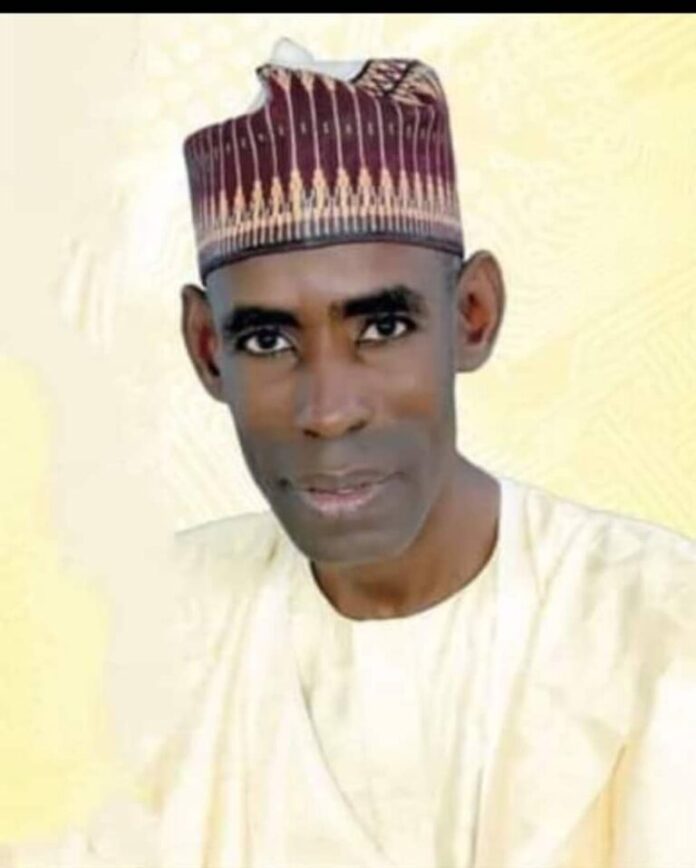Nigeria at 65: Reflections, realities, and the road ahead, by Engr. Bello Gwarzo Abdullahi, FNSE
As articulated by Professor Chinua Achebe in his seminal work The Trouble with Nigeria, the challenges confronting our nation can be unequivocally attributed to leadership. But what constitutes effective leadership? While there are myriad definitions, one undeniable truth remains: leadership transcends mere titles — it is a sacred trust. It ought to embody the aspirations of the populace and serve as a guiding beacon for national advancement. The caliber of leadership within any nation is intrinsically linked to its trajectory of progress or regression. In Nigeria’s case, after 65 years of independence, this correlation has never been more palpable — or more disconcerting.
As we commemorate the 65th anniversary of our liberation from colonial dominion, the moment has arrived not solely for jubilation, but for profound and candid introspection. Where do we stand today as a nation? What has gone awry? Why do we find ourselves ensnared in the same predicaments decade after decade? Most critically, what must we alter in our approach as we forge ahead?
On October 1, 1960, Nigerians brimmed with optimism, envisioning a united, equitable, and prosperous nation where “no man is oppressed.” At that historic juncture, Nigeria stood on the precipice of greatness. With its abundant human and natural resources, substantial population, and strategic location on the African continent, Nigeria was poised to lead — not only in Africa but on the global stage. The expectations were unequivocal: a united, peaceful, and secure nation; visionary and principled leadership; robust institutions governed by the rule of law; equitable economic growth and prosperity; access to quality education and healthcare; and active citizen engagement in governance.
Regrettably, these aspirations have been persistently undermined by subpar governance, ethno-religious schisms, economic mismanagement, and — most critically — a profound crisis of leadership. The stark reality is that our nation is not lacking in resources; it is bereft of responsible, competent, and people-centric leadership. This is particularly evident in the performance of the current administration, whose tenure has been characterized by disillusionment, squandered opportunities, and, in some instances, outright dereliction of duty.
The failures of the present leadership are almost palpable. They encompass economic decline, pervasive insecurity, a lack of accountability, and the erosion of democratic values. Instead of steering Nigeria toward growth, the current leadership appears to be navigating the country deeper into a quagmire of uncertainty, frustration, and despair.
The pressing question now is: What is the path forward? The solution is not elusive. If we are to transcend mere survival as a nation and begin to flourish, we must confront the future with clarity and courage. A rejuvenated Nigeria is conceivable — but not with antiquated attitudes and practices. We must shift from personality-driven politics to principle-driven leadership. Leaders must be chosen based on integrity, competence, and vision. Strong nations are built on strong institutions, not strongmen. Our judiciary, civil service, and security agencies must be fortified and depoliticized. An active and enlightened citizenry is crucial. Nigerians must engage beyond elections — demanding transparency and accountability at every level. Policies must prioritize education, healthcare, youth empowerment, and economic inclusion. Development must be visible and measurable. Our diversity should be harnessed as a strength, not wielded as a weapon. We must rebuild trust among ethnic groups, foster unity through justice, and craft a national narrative that inspires pride rather than division.
At 65, Nigeria is far too mature to still be stumbling through the rudiments of governance and nation-building. We have paid an exorbitant price in blood, squandered potential, and lost time. We can no longer afford to romanticize our challenges or normalize failure. It is time to demand better, strive for improvement, and embody excellence — both as leaders and as citizens.
This anniversary of independence must not devolve into yet another photo opportunity for political elites or a hollow celebration of bygone glories. It must serve as a watershed moment — a national reckoning, a recommitment to the principles of justice, equity, and progress. If leadership is indeed a reflection of the populace, then we — the people — must also engage in self-reflection. What kind of nation do we genuinely desire? What sacrifices are we willing to make to achieve it? And when will we cease to settle for mediocrity?
We owe it to future generations to bequeath a country better than the one we inherited. This responsibility begins with truth-telling, courage, and decisive action. The journey ahead may be arduous, but it is not insurmountable. With vision, accountability, and unity of purpose, a revitalized Nigeria remains within our grasp.
Let this 65th anniversary be remembered not for its rhetoric or ceremonies, but for its spark — the moment when we collectively resolved to rewrite our national narrative.
bgabdullahi@gmail.com
1 October 2025.
Follow the Neptune Prime channel on WhatsApp:
Do you have breaking news, interview request, opinion, suggestion, or want your event covered? Email us at neptuneprime2233@gmail.com





